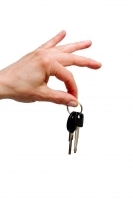 One of the unique properties of the Boy Scout program is that it is boy-led. It’s not a program where adults put together activities that the youth members merely participate in. When properly done, and when adults don’t inappropriately usurp their authority, the Scouts plan and lead their own program within the boundaries of Scouting.
One of the unique properties of the Boy Scout program is that it is boy-led. It’s not a program where adults put together activities that the youth members merely participate in. When properly done, and when adults don’t inappropriately usurp their authority, the Scouts plan and lead their own program within the boundaries of Scouting.
In one of his podcasts, Scoutmaster Clarke Green likened this to a game of basketball. The players play the game but they do so according to the rules of the game. And the coaches cannot step across the line and play the game for them.
Recently, there was a thread on one of the discussion groups where the topic drifted over to whether the boys actually take charge. “We never really give them the keys,” the writer stated, noting that the BSA recently took away the ability of a patrol to go hiking and camping on their own (that is, without adults accompanying them).  This sprung from thoughts on how merit badge “universities”, clinics  and summer camps take away the need for the boy’s initiative to seek out a counselor and learn the material, thus allowing boys to “show up and you’ll get X merit badge” without requiring much in the way of effort, barely satisfying the requirements, and certainly not the intent of the merit badge program. “[I]n Scouting, we have pretty much taught them over the course of many years that they can expect to be spoon-fed.” He contrasted this with learning to drive, where a young person must actually read, learn and practice the requirements over a period of time and demonstrate them under scrutiny before he or she is handed the keys to the car, which most will do eagerly in order to gain that freedom.
A lot of this “spoon feeding” is the result of well-intentioned adults who have not unlearned the ways of Cub Scouting as they cross over to a troop. Yes, in Cub Scouting the adults do the planning and essentially spoon-feed the program to the boys, but this goes against everything Boy Scouting is about.
I’d like to counter with the thought that we do indeed “give them the keys,” in the same sense as driving. Yes, when you drive a car you are free to go pretty much anywhere, but you still must obey the rules of the road. You can’t drive a hundred miles an hour, through a red light, or the wrong way on a highway. You can’t drive across someone’s lawn. And you have to figure out how to pay for gas and other operating expenses.
In Scouting there are rules that the boys have to live by – not only the Scout Oath and Scout Law, but the Scouting program itself. They are free to plan and carry out any activities that they want to, go anywhere they want to, and do pretty much what they want, as long as it fits within the boundaries of the Scouting program. (Back to Clarke’s analogy, a basketball team doesn’t decide to put the ball down and go outside to play football.) Adults are there to make sure they stay within the boundaries of Scouting (and do the things that they can’t do for themselves, like sign checks or hitch up the trailer) but it is our responsibility to see that we do not take away their freedom and their responsibility to run their troop. The fact that out of thousands of troops you’ll never find two that do exactly the same things is a testament to the randomness of adventure-minded youth.
Our difference is that we allow, and often even encourage, boys to fail when failure is a non-destructive learning experience. Not many police officers will send a young driver away with only a warning if he veers off the road and hits a mailbox, but by keeping an eye on the boys from a distance, and upholding the quality of the program, we can allow our Scouts to make mistakes and learn from them.
So go ahead. Give them the keys and let them drive their troop, but make sure they know the rules of the road. Be the “good cop” if the wheels should come off, but don’t stand at every intersection directing traffic. And remember that Scouting isn’t like all the other youth programs where the adults make the decisions and the kids follow orders – that’s why they and their friends joined!
Image: FreeDigitalPhotos.net
This post first appeared on Bobwhite Blather.


